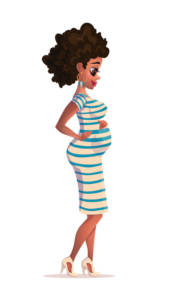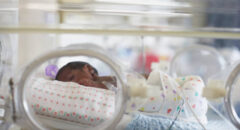 Over 200,000 women go into preterm birth each year, oftentimes leading to health issues for both mother and baby. Factors like age, weight, medical conditions, stress, and lifestyle all can contribute to risk for preterm labor. One of the most shocking, however, is that black women have a 50% increased chance of preterm birth than white mothers, as well as other complications. Even tennis superstar, Serena Williams, has faced some of the complications that many black women face.
Over 200,000 women go into preterm birth each year, oftentimes leading to health issues for both mother and baby. Factors like age, weight, medical conditions, stress, and lifestyle all can contribute to risk for preterm labor. One of the most shocking, however, is that black women have a 50% increased chance of preterm birth than white mothers, as well as other complications. Even tennis superstar, Serena Williams, has faced some of the complications that many black women face.
Dr. Jamil Abdur Rahman, OB/Gyn, and TV personality, said, “African-American women are at higher risk for pregnancy complications and therefore need to be more aggressive about prenatal care. Simple things like taking your prenatal even before conception and making sure the prenatal formulation is adjusted for any risk factors you might have.” While we cannot do much to change our environments or genetic predispositions, we can take charge of our diet and lifestyle. Listed below are several of the most essential nutrients for creating a happy environment for a developing baby:
Folate- Folate (or Folic Acid) is most widely known for being an essential part of pregnancy nutrition, as it helps protect the fetus from neural tube defects. Studies have also shown that taking the recommended amount of 600-800 mg per day, can decrease a woman’s chances of preterm labor by up to 70 percent.
DHA- DHA is an omega-3 fatty acid that helps babies develop in a timely and proportional manner and if taken at the proper dosage, has even shown to allow mothers tospend less time recovering in the hospital postpartum. Aim to take about 600mg per day.
Calcium- Calcium is well-known for its help in developing the skeletal system. Take the recommended about of 1200 mg per day to help your child develop according to the proper timeline.
B Vitamins- The spectrum of B Vitamins are essential in your child’s hormonal, macular, spinal, brain, and heart development. It is crucial that you are watching your B vitamin intake to ensure proper development.
Checking off the boxes of each vital nutrient can be tough. Eating less processed foods and saturated animal fats will help give you more room for eating nutrient-dense foods, like fruits, vegetables, whole grains, and proteins. These foods will help you cover the whole spectrum of prenatal nutrition, but we also suggest taking a daily prenatal vitamin to assist you in your quest for a healthy baby and you!
Lauren Wicks
Babykixx Content Writer and Freelancer
Babykixx prenatal vitamins are a new and revolutionary option, as they are all-natural and come in the form of a fruit smoothie pack. Instead of taking an often nausea-inducing pill, you can stick a pouch of Babykixx in your purse or eat it with your morning breakfast, feeling confident that you are doing all you can to help your baby grow happy and healthy.









